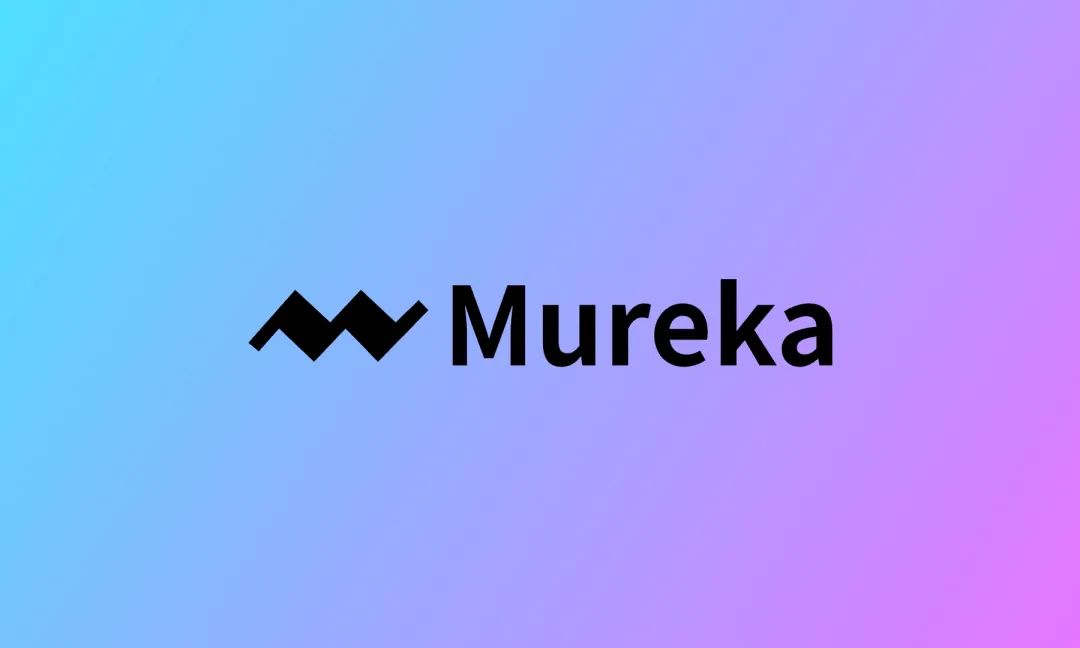
ChatGPT推出了一款搜索引擎,打入了数十年来一直由谷歌(Google)主导并成为其代名词的市场。
ChatGPT背后的OpenAI公司于上周四发布了“ChatGPT搜索引擎”。这款备受欢迎的聊天机器人可以让用户获取互联网上的最新资讯。
许多查询结果与谷歌的标准搜索结果类似。例如,搜索“中餐”会出现附近餐馆的评论列表,而搜索关于哥斯达黎加度假的建议则会出现旅游博客和酒店列表。此外,该工具的重点在于它能像搜索引擎一样提供实时信息,以满足用户即时查询的需求,这些信息随时可能发生变化,如体育赛事比分、股票价格和天气。
该工具随后会整合这些信息并注明其来源。为了准备此次发布,OpenAI与《大西洋月刊》、《华尔街日报》和Vox等媒体公司达成了多项协议,允许这些媒体的内容出现在搜索结果中。
在Reddit上关于ChatGPT搜索引擎的公开问答中,OpenAI首席执行官山姆·奥特曼(Sam Altman)称赞它是对现有搜索模式的一次革新。
奥特曼说:“对于许多查询而言,我发现使用ChatGPT搜索引擎能更快、更便捷地获取所需信息。我认为,尤其是在那些需要深入挖掘的查询上,这种优势将更加突出。我也期待未来能够实现这样的功能,即根据用户的查询动态生成定制化的网页内容作为回应!”
OpenAI发言人表示,ChatGPT搜索引擎旨在通过使用ChatGPT的自然语言处理技能,简化在线信息搜索过程,并为用户提供访问可靠来源的途径。谷歌没有回应置评请求。
ChatGPT搜索引擎在后台使用其他搜索引擎来支持其搜索结果。OpenAI的工程副总裁斯里尼瓦斯·纳拉亚南(Srinivas Narayanan)在Reddit问答环节的评论中表示,其中之一就是微软(Microsoft)运营的搜索引擎必应(Bing)。微软是OpenAI最大的投资者之一。OpenAI尚未透露与之合作的其他搜索引擎的名称。OpenAI发言人表示,ChatGPT搜索引擎将整合多种搜索技术来提供搜索结果。
ChatGPT并不是唯一一家试图利用人工智能搜索引擎与谷歌抗衡的公司。由杰夫·贝佐斯(Jeff Bezos)支持的初创公司Perplexity也自称是人工智能搜索引擎。(《财富》杂志与Perplexity达成了一项收入分成协议,当出版商的内容被人工智能生成的答案引用时,Perplexity将与出版商分享所产生的收入。)谷歌还在搜索结果中使用双子座大型语言模型,对通常出现在搜索结果链接中的内容进行总结。
谷歌在搜索引擎市场占据了约91%的市场份额,而ChatGPT在争夺市场份额上取得了些许进展。投资公司Evercore在9月份对1300人进行的一项调查发现,8%的受访者选择ChatGPT而不是谷歌作为他们首选的搜索引擎,而6月份这一比例仅为1%。
尽管进展可能缓慢,而且一项调查并不能反映整个市场趋势(塑造谷歌1750亿美元搜索广告业务),但考虑到谷歌在搜索领域的主导地位,以至于成为搜索的代名词,这样的发展仍然显得格外引人注目。谷歌的地位坚如磐石,就连微软在去年2月尝试使用ChatGPT来增强必应的搜索结果的努力(当时被认为是一项重大的差异化因素),也只获得了不到一个百分点的市场份额。现在看来,微软和OpenAI已经调整了策略,利用必应为ChatGPT提供支持,而非反之。
尽管谷歌的市场份额增长速度缓慢,但仍令竞争对手相形见绌。谷歌母公司Alphabet并未披露具体的搜索查询次数,但每月的查询量高达数十亿次。即使没有确切的数字,这一数据也远远超过了ChatGPT和Perplexity的用户数量。今年8月,ChatGPT称其每周用户量达到2亿,每月约有8亿。据《纽约时报》报道,截至今年2月,Perplexity的月活跃用户数为1000万,这个数字对于一家初创公司来说相当可观,但与谷歌庞大的用户基数相比,仍然显得微不足道。
尽管如此,硅谷业界普遍认为,人工智能将改变搜索引擎的本质。然而,这种变革的具体形式尚待揭晓,即便是ChatGPT等人工智能领域的重量级玩家也还在探索之中。当一位Reddit用户向OpenAI首席产品官凯文·威尔(Kevin Weil)询问人工智能驱动的搜索与传统搜索之间的区别时,他表示目前还处于探索的早期阶段。
威尔在Reddit上写道:“我们的产品今天刚刚发布,因此在人工智能的世界里,搜索在哪些方面会有相似之处,哪些方面会有所不同,还有很多问题等待我们去探索。欢迎大家提供反馈意见!”(财富中文网)
译者:中慧言-王芳
ChatGPT推出了一款搜索引擎,打入了数十年来一直由谷歌(Google)主导并成为其代名词的市场。
ChatGPT背后的OpenAI公司于上周四发布了“ChatGPT搜索引擎”。这款备受欢迎的聊天机器人可以让用户获取互联网上的最新资讯。
许多查询结果与谷歌的标准搜索结果类似。例如,搜索“中餐”会出现附近餐馆的评论列表,而搜索关于哥斯达黎加度假的建议则会出现旅游博客和酒店列表。此外,该工具的重点在于它能像搜索引擎一样提供实时信息,以满足用户即时查询的需求,这些信息随时可能发生变化,如体育赛事比分、股票价格和天气。
该工具随后会整合这些信息并注明其来源。为了准备此次发布,OpenAI与《大西洋月刊》、《华尔街日报》和Vox等媒体公司达成了多项协议,允许这些媒体的内容出现在搜索结果中。
在Reddit上关于ChatGPT搜索引擎的公开问答中,OpenAI首席执行官山姆·奥特曼(Sam Altman)称赞它是对现有搜索模式的一次革新。
奥特曼说:“对于许多查询而言,我发现使用ChatGPT搜索引擎能更快、更便捷地获取所需信息。我认为,尤其是在那些需要深入挖掘的查询上,这种优势将更加突出。我也期待未来能够实现这样的功能,即根据用户的查询动态生成定制化的网页内容作为回应!”
OpenAI发言人表示,ChatGPT搜索引擎旨在通过使用ChatGPT的自然语言处理技能,简化在线信息搜索过程,并为用户提供访问可靠来源的途径。谷歌没有回应置评请求。
ChatGPT搜索引擎在后台使用其他搜索引擎来支持其搜索结果。OpenAI的工程副总裁斯里尼瓦斯·纳拉亚南(Srinivas Narayanan)在Reddit问答环节的评论中表示,其中之一就是微软(Microsoft)运营的搜索引擎必应(Bing)。微软是OpenAI最大的投资者之一。OpenAI尚未透露与之合作的其他搜索引擎的名称。OpenAI发言人表示,ChatGPT搜索引擎将整合多种搜索技术来提供搜索结果。
ChatGPT并不是唯一一家试图利用人工智能搜索引擎与谷歌抗衡的公司。由杰夫·贝佐斯(Jeff Bezos)支持的初创公司Perplexity也自称是人工智能搜索引擎。(《财富》杂志与Perplexity达成了一项收入分成协议,当出版商的内容被人工智能生成的答案引用时,Perplexity将与出版商分享所产生的收入。)谷歌还在搜索结果中使用双子座大型语言模型,对通常出现在搜索结果链接中的内容进行总结。
谷歌在搜索引擎市场占据了约91%的市场份额,而ChatGPT在争夺市场份额上取得了些许进展。投资公司Evercore在9月份对1300人进行的一项调查发现,8%的受访者选择ChatGPT而不是谷歌作为他们首选的搜索引擎,而6月份这一比例仅为1%。
尽管进展可能缓慢,而且一项调查并不能反映整个市场趋势(塑造谷歌1750亿美元搜索广告业务),但考虑到谷歌在搜索领域的主导地位,以至于成为搜索的代名词,这样的发展仍然显得格外引人注目。谷歌的地位坚如磐石,就连微软在去年2月尝试使用ChatGPT来增强必应的搜索结果的努力(当时被认为是一项重大的差异化因素),也只获得了不到一个百分点的市场份额。现在看来,微软和OpenAI已经调整了策略,利用必应为ChatGPT提供支持,而非反之。
尽管谷歌的市场份额增长速度缓慢,但仍令竞争对手相形见绌。谷歌母公司Alphabet并未披露具体的搜索查询次数,但每月的查询量高达数十亿次。即使没有确切的数字,这一数据也远远超过了ChatGPT和Perplexity的用户数量。今年8月,ChatGPT称其每周用户量达到2亿,每月约有8亿。据《纽约时报》报道,截至今年2月,Perplexity的月活跃用户数为1000万,这个数字对于一家初创公司来说相当可观,但与谷歌庞大的用户基数相比,仍然显得微不足道。
尽管如此,硅谷业界普遍认为,人工智能将改变搜索引擎的本质。然而,这种变革的具体形式尚待揭晓,即便是ChatGPT等人工智能领域的重量级玩家也还在探索之中。当一位Reddit用户向OpenAI首席产品官凯文·威尔(Kevin Weil)询问人工智能驱动的搜索与传统搜索之间的区别时,他表示目前还处于探索的早期阶段。
威尔在Reddit上写道:“我们的产品今天刚刚发布,因此在人工智能的世界里,搜索在哪些方面会有相似之处,哪些方面会有所不同,还有很多问题等待我们去探索。欢迎大家提供反馈意见!”(财富中文网)
译者:中慧言-王芳
ChatGPT has launched a search engine, breaking into the market that for decades has been dominated by—and synonymous with—Google.
OpenAI, the company behind ChatGPT, announced “ChatGPT Search” on Thursday. This version of the popular chatbot will let users get the latest information available on the internet.
Many of the results to queries appear like those one would find on a standard Google search. For example, looking up “Chinese food” yields a list of reviews for nearby restaurants, while a search for advice about a vacation to Costa Rica produces travel blogs and hotel listings. In addition, much of the focus is on the tool’s ability to provide real-time information, just as a search engine does, for queries users want to know right away and which can change at a moment’s notice—sports scores, stock prices, and the weather.
The tool then summarizes that information and cites where it came from. To prepare for the launch, OpenAI secured several agreements with media companies like The Atlantic, The Wall Street Journal, and Vox to allow for their content to be included in its search results.
During a public Q&A on Reddit for the launch of ChatGPT Search, OpenAI CEO Sam Altman hailed it as an improvement on current search formats.
“For many queries, I find it to be a way faster/easier way to get the information I’m looking for,” Altman said. “I think we’ll see this especially for queries that require more complex research. I also look forward to a future where a search query can dynamically render a custom web page in response!”
An OpenAI spokesperson said ChatGPT Search aims to simplify the process of searching for information online by using ChatGPT’s natural language processing skills and providing users with access to reputable sources. Google did not respond to a request for comment.
ChatGPT Search uses other search engines on the backend to power its search results. One of those is Bing, the search engine run by Microsoft, which is one of OpenAI’s biggest investors, OpenAI vice president of engineering Srinivas Narayanan said in a comment during the Reddit Q&A. OpenAI has not released the names of the other search engines it works with. The OpenAI spokesperson said ChatGPT Search will use a mix of search technologies to deliver its results.
ChatGPT is not the only company to try and rival Google with an AI-powered search engine. The Jeff Bezos-backed startup Perplexity bills itself as an AI search engine. (Fortune and Perplexity have a revenue-sharing agreement for revenue generated from search results that feature the publication’s articles.) Google also uses its Gemini large language model for its own search results, to summarize content that would have ordinarily appeared within the links it lists as search results.
ChatGPT has made some very marginal progress in chipping away at Google’s roughly 91% market share of the search engine market. A survey of 1,300 people conducted in September by investment firm Evercore found that 8% of respondents chose ChatGPT over Google as their search engine of choice, an increase from 1% in June.
While progress may be slow, and a single survey is not reflective of the entirety of the market trends shaping Google’s $175 billion search advertising business, it is a rather notable development given that Google’s position was dominant it became a verb. Google is such an immovable force that even an effort last February by Microsoft to use ChatGPT to enhance Bing’s search results—considered a major differentiating factor then—resulted in less than one percentage point of market share gain. It now appears that Microsoft and OpenAI have reversed their strategy, using Bing to power ChatGPT rather than the reverse.
Despite those tortoise-paced gains, Google still dwarfs its competitors. Alphabet, Google’s parent company, doesn’t release exact numbers for its search queries but they are in the billions per month. Even without the specific figures, they are significantly higher than the amount of users ChatGPT and Perplexity have. In August, ChatGPT said it had 200 million weekly users, roughly 800 million a month. While Perplexity had 10 million monthly active users as of February, according to the New York Times, a number that is rather impressive for a startup but pales in comparison to Google’s stature.
Nonetheless, the industry-wide sentiment in Silicon Valley is that AI will change the nature of search engines. How exactly that happens though remains to be seen, even by some of AI’s major players like ChatGPT. When a Reddit user asked OpenAI chief product officer Kevin Weil about differences between AI-powered search and the old-school version, he said it was still early days.
“The product just launched today so there’s a lot to figure out still about where search will be similar and where it will be different in an AI world. Would love any feedback you have!,” Weil wrote on Reddit.





